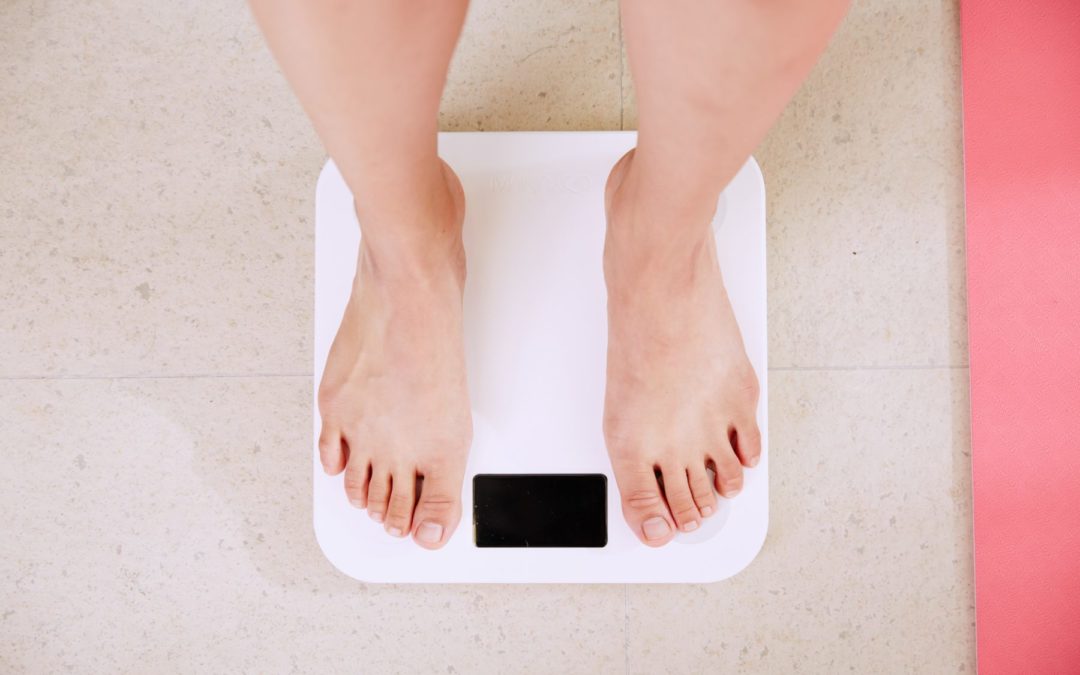Before we begin, the short-answer to this question is “no.” Menopause weight gain does NOT have to be a middle-life sentence. It’s funny, when you’re young, you think you know it all. When I first started my practice, I was pre-babies, pre-40 and pre-real life stressors. As a young dietitian counseling middle-aged women, I lacked the right level of wisdom and empathy necessary to understand the changes they were experiencing. While I can’t blame myself for the stage of life I was in at the time, 15 years later, my counseling game has changed. Today, our conversations are different, and I can more clearly see, hear and feel the challenges that middle-life aging brings.
Menopause increases the likelihood of weight gain, loss of muscle and bone, hot flashes and sleep disturbances. Sounds like a hell of a time, right? According to research, there are two times when women tend to have the largest jump in body weight – between the ages of 20-39 (baby making years?) and 40-59 (menopause).
Menopause Weight Gain: Why It Happens
These less than desirable changes can be blamed on hormonal changes. With a drop in estrogen and then progesterone, we become more susceptible to unwanted menopause weight gain. We become better fat storers, especially in the abdominal region. There is also an increase in visceral fat (fat around our organs) that can cause impaired blood sugar management and an increased risk for heart disease and diabetes. On top of it all, these hormone changes make it harder to burn fat. Thanks, Universe.
Is Their Anything I Can Control?
Yes. Research shows that while these hormone changes put us at risk of menopause weight gain, most weight gain (about 1 pound per year) is attributed to decreased activity and a loss of muscle mass.
Stay Active
Women who tend to better maintain their weight with age are…active. Exercising an average of 60 minutes of activity per day can help ward off unwanted weight gain. Overall activity levels often decrease in this stage of life. For example, if you’re a parent, you may not notice the gradual changes from moving from a mom who battled getting toddlers in and out of carseats to a mom who now sits for long stretches watching her child on the baseball field. As we age, we tend to expend less energy. So strap on that step counter and find ways to get up and initiate more natural movement throughout your day.
Stay Strong
We can lose 1% of our muscle mass per year after the age of 40. Participating in weight-bearing activities such as weight lifting or yoga can can offset these losses. Maintaining muscle mass can help you not only avoid menopause weight gain but improve your overall quality of life.
The Anti-Weight Gain Menopause Diet
Our anti-weight gain menopause diet has 4 main components which include::
- eat the right amount of food (calorie needs decrease with age)
- eat adequate protein (20-30 grams of protein per meal)
- focus on high-fiber carbohydrates
- enjoy a big breakfast and a smaller dinner
Eating adequate protein at every meal helps you maintain muscle. Most people get enough protein at dinner but tend to skimp on protein at breakfast and lunch. High-fiber carbohydrates like whole grains, beans, and produce have a lower glycemic index and support weight loss and even blood sugars. Eating during the light of the day versus late at night has been shown to help facilitate weight loss, in particular, belly fat. So the adage is true: “eat breakfast like a king, lunch like a prince, and dinner like a pauper.”
Outside of Diet and Exercise
According to sleep research, 61% of postmenopausal women experience insomnia. Hot flashes, anxiety and depression are contributors to sleep disturbances. Sleep deprivation exacerbates weight gain by disrupting hunger hormones. You’re likely to feel hungrier and connect less with fullness. Total double whammy. Establishing a healthy sleep routine can help you get the most out of the sleep you’re able to get. We recommend avoiding the following prior to sleep:
Turn off screens 30-60 minutes
Avoid caffeine 4-6 hours
Limit alcohol 2-3 hours
It’s also helpful to keep the room cool, establishing evening rituals like meditation or reading (a real book) and aiming for 7-8 hours of sleep per night.
Approach It with Compassion
We’ve scratched the surface, but we hope we’ve empowered you and provided the evidence that menopause related weight gain isn’t a requirement. No matter what kind of aging journey we have ahead, the most important piece of all is self-acceptance. While our bellies might not be tight and taunt like it was in our twenties, the wisdom and character we own in our 40’s, 50’s 60’s and beyond are priceless. This doesn’t mean we stop striving for our healthiest, physical self, but it does mean we do it with self-compassion, patience, and joy.
Let us help you if you feel stuck. We will walk beside you, helping you re-write habits that serve your place in life.

